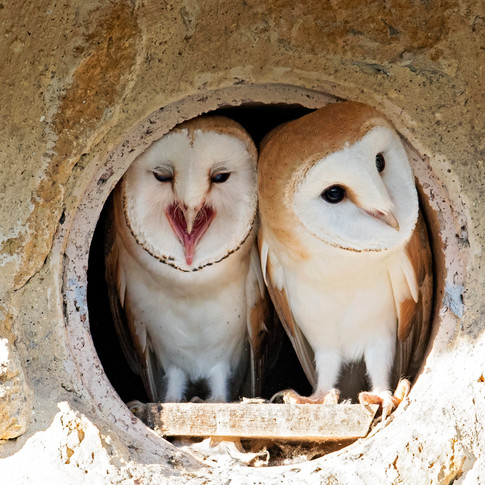Wildlife and landscape photography is my therapy. Following a significant incident as a police officer and a number of other life-changing experiences as a soldier and mental health specialist my once robust, taken for granted mental health decided enough was enough and I developed PTSD in 2010. Seven very long years later I'm somehow still here and feeling more positive about life than say two years ago. I strongly believe in the power of the great outdoors to help calm a troubled mind and improve physical and mental wellbeing. Put me in some remote, seemingly desolate place or give me a wildlife project to commit to and you'll find me at my happiest. I was fortunate enough to do some volunteer photography work for Dorset Wildlife Trust a while ago and we've become the best of friends ever since. They understand my mental health problems and support me to make the most of their amazing reserves by giving me access to their expert wardens and volunteers. In return for huge doses of peace and quiet with only wildlife for company I give copies of my images to the Trust for them to use to promote their invaluable work and to highlight how fragile our environment and wildlife truly is. I get a great deal of satisfaction knowing that I'm putting something back in and utilising the many years of photography experience I've accumulated. This page is my opportunity to showcase some of the projects I've undertaken and is very much a work in progress that I'll update when I can. I hope you enjoy the images as much as I got pleasure from being so close to the subjects.
Red Squirrels
Red squirrels are Britain's only native squirrel. They are at a critical point in the country as a whole but are particularly vulnerable in England where they only have a foothold in several key areas. Threats to their environment and the ever present competition for food and resources from the imported grey squirrel, along with a virus the grey carries, have meant our indigenous mammal is rarely seen and is struggling. Thankfully there has been a seismic shift in mindset over the last few years with a number of English counties actively taking steps to reduce the grey population and increase and improve the environment the red squirrel prefers. I've been fortunate to photograph the red squirrel up in Scotland, the Yorkshire Dales and here in Dorset on Brownsea island in Poole harbour. Red squirrels here are protected from predators and there are no greys on the island. Food sources are plentiful and the National Trust, Dorset Wildlife Trust and other partners go to extraordinary lengths to ensure the population on the island have the best chance of survival they can. I'm lucky enough to be able to get across to the island to photograph and film them on a regular basis - I also get to stay for several nights which gives me opportunities for other wildlife photography. The images below are from all three locations - you may be able to see subtle differences in each distinct population...

























Lorton Meadows Barn Owls
Following on from my work with red squirrels I was able to begin an equally important project highlighting the fragility of the British barn owl. Working with Dorset Wildlife Trust I spent the best part of three months documenting the lives of a family of five barn owlets and their forever busy parents. Starting at 0330 most mornings soon became my norm and I began to settle into the routine of filming and photographing the Lorton Five as I called them until around 0730 when I'd head off to other wildlife or landscape locations. I'd try to get back most evenings for an hour before the gloaming to capture the different behaviour of both the adults and young. I clearly became something of a regular sight for the family as there were many occasions when they tolerated my presence even when fledging. My final few days with them were spent watching all five owlets leave the safety of their nest as they learnt to fly and hunt. It was with a sense of sadness and relief (I was tired by July) that I waved off the final owlet of the bunch as it too left to find its own way in the world. One of the nicest things about the whole project was the involvement of people who were able to watch the family via black and white cctv from within the nest. There were many moments of drama and frankly hilarity as the various members of the Lorton Five stretched, argued, waited for food and bobbed their heads around as they practised sighting prey. I was able to add another dimension to the cctv coverage by providing a link to my colour images of the owlets outside the nest box as they looked out across at the world that was waiting for them.
This year DWT have again kept the cctv running over winter. Both the adults have stayed together and made it through some fairly tough weather. There is every chance they will mate and we all get another chance to look into the secret world of one of our most iconic birds as they once again fight to raise their young. DWT have started a fund raising project to help safeguard the future of not only the Lorton owls but also other barn owls in Dorset. I've added the link to this page in the hope you can either donate or at least share the link and get the message out there that barn owls nationally are struggling to survive. Losing the barn owl would be nothing short of a national disgrace in my less than humble view so spread the word and lets see more barn owls as they silently float past us like ghosts in the late dusk.
Thank you
https://www.dorsetwildlifetrust.org.uk/barnowl










